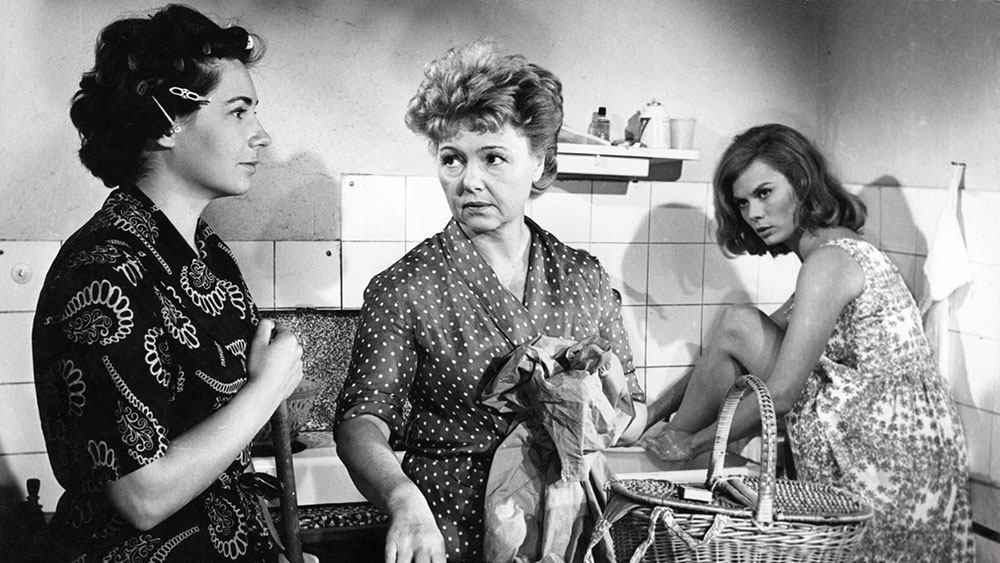"Lucid” and “romanticism” don’t go well together,” one of Jacquie’s (Jacqueline Vandal) more detestable suitors chides her in La dérive (1964). Jacquie disagrees. She harbors one clear-eyed goal: the pursuit of romantic and emotional fulfillment without concession to the domestic expectations of pre-1968 French femininity. Abandoned by the slouching troubadour she skipped town with, Jacquie finds herself irreparably unsettled. “You’re the type of girl who always ends up in trouble,” the guitarist tells her, confessing his cold feet before leaving her on a train while she sleeps. “I’d rather be that than bored,” Jacquie replies.
Paula Delsol (or Paule, as she is credited in the film), a Cahiers du cinéma contributor and close friend of François Truffaut, directs La dérive with all of the freewheeling flair of her French New Wave contemporaries. She pairs on-location, naturally lit shooting with constant camera moves, rapid-fire cuts and, in the first section, text on-screen. As Jacquie exits the train station, confounded by her new freedom, text announces that this film is a portrait of her “drifting sentimentality.” Jacquie returns home to the shores of southern France, where she is welcomed back by her mother and sister, and begins a restless cycle of emotional and sexual transactions.
While it is often noted that Jacquie is a vagabond before Vagabond (1985), she’s more flâneuse than desperate seeker. Like Wanda in Barbara Loden’s eponymous film, Jacquie learns that her femininity is commodifiable—a ticket to survival when funds run dry. She refuses to work, giving the repeated explanation that she just isn’t good at anything laborious; instead, she wiles away her time with a parade of men old and new.
The film’s title recalls Guy Debord’s contribution to the psychogeographic philosophy of the Situationists. Theorized in 1958, Debord’s “drifts” describe a period when an individual drops all relations and responsibilities, forgets their “usual motives” for movement, and “lets themselves be drawn by the attractions of the terrain and the encounters they find there.” A drift privileges randomness, and an abuse of the typical norms of public space. Jacquie is a true drifter in the Situationist sense: unburdened, itinerant, and causing a spectacle.
La dérive screens this evening, February 9, at Anthology Film Archives as part of the series “Wandering Women.” The screening will be followed by a discussion between series curator Nina Verneret and scholar Jamie Berthe.



